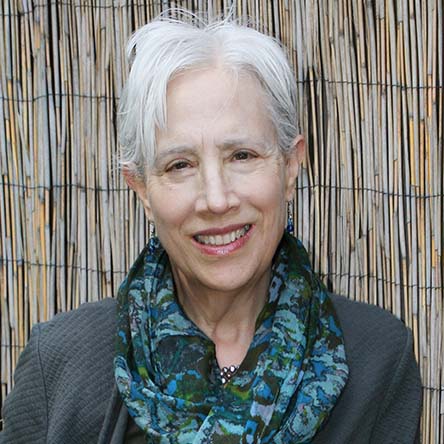The day in the life of a Poll Worker
I kept seeing notices on social media and in emails that there was a shortage of poll workers and that some polling places may not be able to open if they did not get enough people signed up. Eventually, I decided it was my civic duty to participate in this election cycle as a poll worker.
I really had no idea what to expect, except that it would be a VERY LONG DAY.
To become a poll worker in South Carolina, you first submit your application to the SC Election Commission. You must be a registered voter in South Carolina to be a poll manager (which is what they call poll workers). Teens over 16 can apply to be poll assistants, and at the precinct where I was working, we did have a teen working alongside us.
Once your application is accepted, you will receive an email with a username and password to use to take the online training. The online training takes between 5-10 hours to complete. It covers everything from setting up the precinct, checking people in, what to do when circumstances come up like someone is at the wrong precinct, or someone’s address has changed. There are detailed procedures for shutting down at the end of the day. Once you complete your online training, the county holds an in-person training. In Greenville County that training was a review of what was covered on-line, we received our Poll Manager handbook, had our questions answered and took the Poll Manager Oath.
“I do solemnly swear (or affirm) that I am duly qualified, according to the Constitution of this State, to Exercise the duties of the office to which I have been appointed, and that I will, to the best of my ability, discharge the duties thereof, and preserve, protect and defend the Constitution of this State and of the United States. So help me God.” (Article III, Section 26, S.C. Constitution)
“We do solemnly swear that we will conduct this election according to law and will allow no person to vote who is not entitled by law to vote in this election, and we will not unlawfully assist any voter to prepare his ballot and will not advise any voter as to how he should vote at this election.” (SC Code §7-13-100)
Polls open at 7:00am, and we had to be at the assigned precinct no later that 6:00am. Once you are there, you cannot leave until the polls close, and everything is shut down and reconciled. We left around 8:15pm.
What were some of my concerns about performing this job?
- With so much anger being reported by the media, I was concerned that we might have some trouble at the poll. This did not happen where I was working. Most people were pleasant, and some even thanked us for the work we were doing.
- Hunger was a concern for me. I like to eat intermittently during the day and always have something nearby to drink. What could I pack for all day that would be easy to eat during a lull and that would maintain my energy and blood sugar levels? I decided on a couple of hard-boiled eggs, hummus with crackers and sliced peppers, an apple, grapes, a couple of protein bars and a tuna sandwich. Also a couple of bottles of water (which were not enough). We did have someone’s mom bring us some additional water and coffee.
- I was concerned that I would not remember all the procedures. The clerk at our precinct was great. She had us rotate positions so we got to experience all of the roles, but during the rush, the more experienced people handled check ins. I started as a greeter, letting people know to have their ID’s out and their phones on mute and in their pockets. I learned that it is a FELONY in South Carolina to use your phone while you are voting. You can bring in a printed ballot, but you cannot refer to the ballot on your phone.
What impressed me about the day?
- Voting was steady so although the hours were long, it did not get boring.
- I was impressed by the teen that worked with us. The young voters are our future and seeing her involvement and talking with her inspired me.
- We had quite a few first-time voters, which was also inspiring.
- At closing, I had a lot of questions about how the votes get transmitted and I want to share that with you. It almost seems impossible that the voting machines could be tampered with.
Closing process:
First of all, the check-in devices are the only devices connected to a private wifi. This is where you check the voters ID to verify that they are a registered voter and that their address is correct.
When someone completes their ballot, they take this ballot to a scanning device that is not connected to any type of external service. The ballot is scanned in and counted, and the data is stored on a drive in the scanning device.
During shutdown, the Poll Clerk unlocks the scanning device, while being observed by at least two other poll workers. She checks the number on the locks, records them and then removes the box containing any paper ballots that were submitted. Why might we have paper ballots? Some people that are unable to come inside are allowed to vote curbside and they complete a paper ballot. If for some reason the check-in device is not working correctly and we cannot generate the machine ballot, the voter is given a paper ballot. That did happen first thing in the morning, but we got the check-in devices up and running by 7:30. And occasionally someone may be given what is called a provisional ballot which is also a paper ballot.
The scanner will generate 3 copies of the count at the end of the day, on a long paper tape. One copy is posted in the window of the polling place. One copy is transmitted by the clerk, along with the thumb drive with the results, to the election board. The third copy is secured with other voting materials. All copies must be signed by all poll workers.
We also have to reconcile the count. We look at how many ballots we received, how many were used and how many remain. This number has to balance.
I felt good about the process. I felt that it was secure. I did not necessarily like the results of the voting, but that is what happens in free and fair elections. The voters make their choices. As long as we participate and accept the outcomes we are participating in democracy.
The post The day in the life of a Poll Worker first appeared on .

























